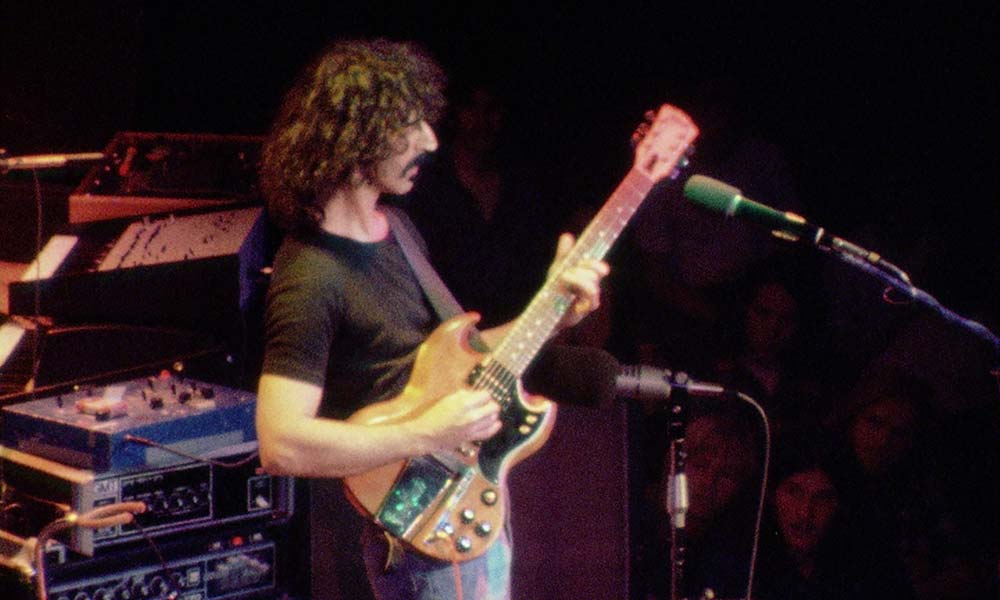Individualists that make a mark on the rock mainstream are hard to come by. Today we celebrate the memory of a complete one-off. Frank Zappa passed away, surrounded by his family, on December 4, 1993. He was only 52, and had been diagnosed with prostate cancer two years earlier. With a certain fond irreverence that he would have enjoyed, his family announced: “Composer Frank Zappa left for his final tour just before 6:00 pm on Saturday.”
Non-conformist to the core and a peerless satirist who nevertheless took his musicianship very seriously, Zappa left a huge legacy of recorded music. Born in Baltimore on December 21, 1940, the Los Angeles-based multi-instrumentalist, composer, producer and frontman is perhaps best remembered for the mark he made on the experimental rock counter-culture of the late 1960s. But his influence extended into the worlds of jazz, classical and electronic music, and his love of experimentation was present in all of them.
Less well known is the influence of 1950s R&B and blues on the musically inquisitive Zappa, who had an enduring friendship from high school days with Don Van Vliet, later to find similar notoriety in the rock underground as Captain Beefheart, The de rigueur rock’n’roll education of his young years, and his schooling on the guitar, ultimately led to the formation of the Mothers of Invention, and a debut album in 1966, Freak Out, that still sounds extraordinary nearly half a century later. In those days, it sounded almost as if it came from outer space.
“Ahead of his time” is a cliché that nevertheless applies to this and almost everything in the Zappa canon. That album only reached No.130 in America, but would later win its place in the Grammy Hall of Fame. Even if sales were never his motivation, as his body of work expanded there were gold album certifications for the Mothers’ Over-nite Sensation and Apostrophe.
Any glib summary of his creativity is ill-advised and, in any case, impossible, but a first-time listener to Frank’s work might be drawn to those early albums, or to the late 1970s surge that produced Sheik Yerbouti (reissued on 180 gram vinyl by Universal Music Catalogue), the two Joe’s Garage projects and the classical exploration of the years before his death. Prolific to the end, he placed 34 albums on the Billboard charts in only 14 years.
Listen to the best of Frank Zappa on Apple Music and Spotify.
“I write music because I want to find out what it sounds like,” Zappa told the International Times in 1969. “Sometimes when I write it down on paper I haven’t the faintest idea what it’s going to be like when it’s played, I just don’t know. I don’t want to know till I hear it, because I want to get it down there as fast as I can before I forget what I’m doing, so I’m just as surprised as anybody else when it’s done, sometimes.”
Buy the four-CD Halloween 73 box set and the single CD Halloween 73 Highlights.



